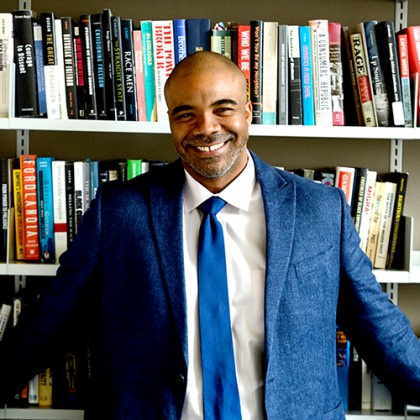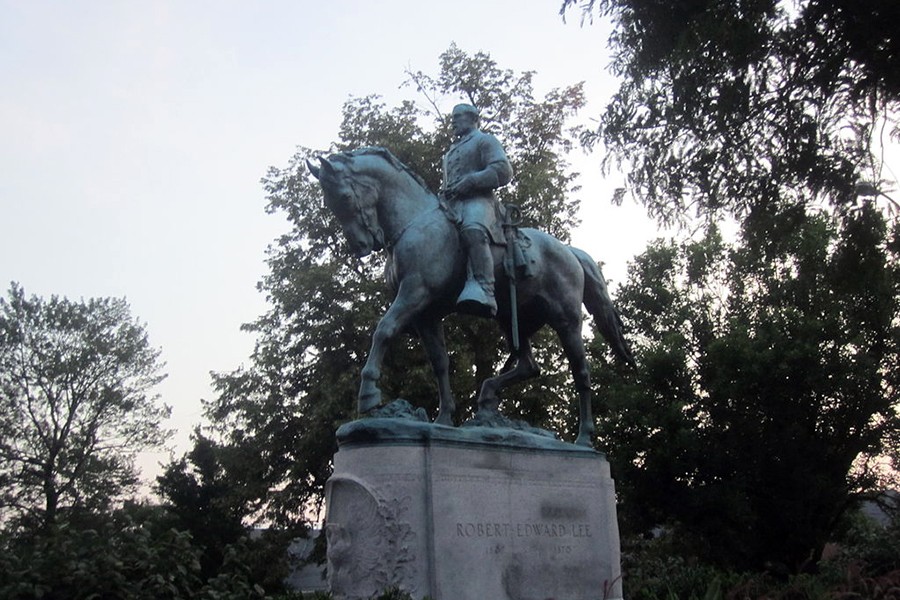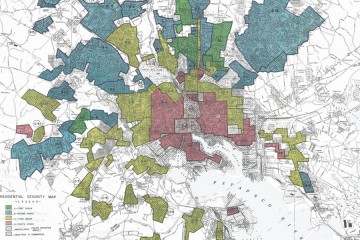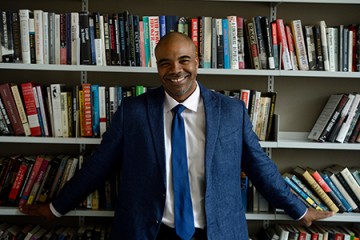Johns Hopkins historian N.D.B. Connolly, an expert in politics, capitalism, and racism, today weighed in on the events that shook Charlottesville, Virginia over the weekend, when a white nationalist rally devolved into violence. One woman who was protesting against the rally died in what the U.S. Justice Department has called an act of domestic terrorism, and two police officers were killed in a helicopter accident.

Image caption: N.D.B. Connolly
Image credit: Will Kirk / Johns Hopkins University
In the commentary, published today in The Washington Post, Connolly says last weekend's white nationalist demonstration in Charlottesville, Virginia, has made it clear that "generic solutions" to this county's racial problem do not work, and that for too long, discrimination and equality in the U.S. have operated "like an oversized historical game of paper-rock-scissors."
Liberalism, he says, is the "paper," that we've been throwing for a long time—the contract between the government and its people. The persistence of white supremacy, he says, is our "scissors," which aim to cut certain groups of people out of that contract.
Resistance, Connolly says, is the "rock."
"Rocks can look like armed self-defense or nonviolent direct-action campaigns," he says. "They appear, too, as blunt, bald public speech about the hatred arrayed against the dispossessed."
He adds that the rock of resistance includes those who have lost their lives in defense of civil rights. "Add to their number Heather Heyer, the white woman killed in Saturday's attack in Virginia," he writes.
And yet, he says, despite civil rights won largely by "rocks," such as the riots following the 1968 assassination of Martin Luther King Jr., the country reverted to "paper."
"We covered and concealed any historically specific grievance with a general promise of 'equal opportunity,' ownership, and with law and order," he says.
It is time, Connolly argues, to stop fighting white supremacy with liberalism—battling scissors with more paper. "We would do well," he concludes, "to wise up and start throwing rock—public denunciations of white supremacy, clear anti-racist institution building, and fighting for policies that undo the money made off racism, especially with an ancient hatred now standing unhooded."
Read more from The Washington PostPosted in Voices+Opinion, Politics+Society
Tagged black politics, racial justice, racism










